THE DUCK, a female mallard, chased the male mistle thrush, stopped and then the thrush walked towards the duck. It looked very much like cross-species bird flirting. It also looked ridiculous given how much bigger the duck was than the thrush, three times bigger at least.
That this avian courtship was taking in place in front of group on an April Fool’s Day tour made it all the more delicious. The whole event was mad, with me delivering twenty five crazy Manchester stories and guests having to guess up to five false ones. We finished in the Town Hall Tavern where the group were tasked with singing Oasis’ Don’t Look Back in Anger to the tune of George Formby’s When I’m Cleaning Windows.
The false story, I only did one I included in the end, concerned a carving of rabbits in the Cathedral, called Rabbits Cooking The Hunter.
This is was the fib and what I said: ‘Elmer Fudd was right in his unceasing quest to kill Bigs Bunny. Rabbit should be pronounced 'wabbit'. We've just been talking about Samuel Johnson's 1750’s dictionary in Chetham’s Library. Well another of the books reveals something else. And it seems that for certain 'r' animal words the original pronunciation was 'w', this comes from a twist in the sounds handed down from the Germanic into Anglo-Saxon and which was continued in use by peasants. Thus in the 1300s it might not have been unusual for a peasant to have said: 'The wabbit and the wobin are worried by the wat.' This only applied to animal words. So, Elmer Fudd was right. Rabbit should be said 'wabbit'. Easter bunnies, Easter wabbits.’
I’m pleased only two of the teams on the tour guessed this was the false story.
That this avian courtship was taking in place in front of group on an April Fool’s Day tour made it all the more delicious. The whole event was mad, with me delivering twenty five crazy Manchester stories and guests having to guess up to five false ones. We finished in the Town Hall Tavern where the group were tasked with singing Oasis’ Don’t Look Back in Anger to the tune of George Formby’s When I’m Cleaning Windows.
The false story, I only did one I included in the end, concerned a carving of rabbits in the Cathedral, called Rabbits Cooking The Hunter.
This is was the fib and what I said: ‘Elmer Fudd was right in his unceasing quest to kill Bigs Bunny. Rabbit should be pronounced 'wabbit'. We've just been talking about Samuel Johnson's 1750’s dictionary in Chetham’s Library. Well another of the books reveals something else. And it seems that for certain 'r' animal words the original pronunciation was 'w', this comes from a twist in the sounds handed down from the Germanic into Anglo-Saxon and which was continued in use by peasants. Thus in the 1300s it might not have been unusual for a peasant to have said: 'The wabbit and the wobin are worried by the wat.' This only applied to animal words. So, Elmer Fudd was right. Rabbit should be said 'wabbit'. Easter bunnies, Easter wabbits.’
I’m pleased only two of the teams on the tour guessed this was the false story.
The day before the above tour I’d taken a full house of guests along Chapel Street in Salford,on a tour jointly organised with Salford City Council. This route is remarkably rich in colourful detail and national significance. In less than a mile it captures the essence of these central areas of the conurbation. We went inside Sacred Trinity church and St Philip’s church, both of whom supplied a splendid welcome, as is the way in these modern, progressive places of worship. A big, big thanks to Kolyn and Alice respectively in Sacred Trinity and St Philip's. (And for that matter, a big thanks to Shelagh McNerney, Head of Development, Salford City Council, and her team for facilitating the tour.)
In St Philip’s we went into the atmospheric crypt and saw the walled up grave of one of the most important military figures of the first half of the nineteenth century, Lieutenant Colonel Sir Thomas Arbuthnot, fought in the Napoleanic Wars from Spain to the West Indies. He was the North and Midlands of England military commander during the tumultuous 1840s, a time of great distress and Chartist unrest. He, apparently, carried out his role with great sensitivity.
His house was on the Crescent close to St Philips. He died without children, his wife having died many years before. Arbuthnot’s funeral in 1849 was a huge affair packed with military pomp and attracting thousands of bystanders. His simple wooden coffin can be glimpsed through ventilation holes in the crypt. We finished the tour by singing Ewan MacColl’s hymn to the gritty reality of Salford seventy year’s ago, Dirty Old Town. It was sung with relish by the guests.
In St Philip’s we went into the atmospheric crypt and saw the walled up grave of one of the most important military figures of the first half of the nineteenth century, Lieutenant Colonel Sir Thomas Arbuthnot, fought in the Napoleanic Wars from Spain to the West Indies. He was the North and Midlands of England military commander during the tumultuous 1840s, a time of great distress and Chartist unrest. He, apparently, carried out his role with great sensitivity.
His house was on the Crescent close to St Philips. He died without children, his wife having died many years before. Arbuthnot’s funeral in 1849 was a huge affair packed with military pomp and attracting thousands of bystanders. His simple wooden coffin can be glimpsed through ventilation holes in the crypt. We finished the tour by singing Ewan MacColl’s hymn to the gritty reality of Salford seventy year’s ago, Dirty Old Town. It was sung with relish by the guests.
Speaking of gritty, on one of the Mayfield tours recently a gentleman told me how his teacher during the 1960s had referred to Manchester’s three rivers, the Irwell, Irk and Medlock as the Inkwell, Mirk and Mudlark due to their extreme pollution at the time. Now there are brown trout back – as this video shows which I filmed with the Environmental Agency a few years back.
I loved another story on a recent Mayfield tour. Up on the platform level there’s a rusting piece of kit. Its official title is British Rail Universal Trolley Equipment. The acronym used by rail workers and managers was BRUTE. One guest on a snowy tour recalled how his mother was once taken aback in Victoria Station by a warning sign which used the acronym but failed to define what it meant. The sign read, ‘Please be careful of BRUTES on the platforms.’ Wise words.
I loved another story on a recent Mayfield tour. Up on the platform level there’s a rusting piece of kit. Its official title is British Rail Universal Trolley Equipment. The acronym used by rail workers and managers was BRUTE. One guest on a snowy tour recalled how his mother was once taken aback in Victoria Station by a warning sign which used the acronym but failed to define what it meant. The sign read, ‘Please be careful of BRUTES on the platforms.’ Wise words.
I mentioned an old department store on Stretford Road, called Paulden’s’, on a Principal Hotel tour recently. One lady remembered working at the Refuge Assurance, as the Principal Hotel was formerly, when a dramatic fire in 1957 destroyed the department store. Everybody was upset about the loss of this Manchester landmark apart from, “lots of people in Hulme, as all the records of their hire purchase payments had gone up in smoke with the fire.”
The Haunted Underworld tour on Sunday was great fun. Thanks must be extended to Tina Miller for her screams at the climax of a couple of stories in the dark. Screamers on ghost tours spread a fabulous mood of tension amongst guests, which is a fine quality in a spooky, dark, underground location. In fact, I might hire Tina to seed fear in the dark.
The Haunted Underworld tour on Sunday was great fun. Thanks must be extended to Tina Miller for her screams at the climax of a couple of stories in the dark. Screamers on ghost tours spread a fabulous mood of tension amongst guests, which is a fine quality in a spooky, dark, underground location. In fact, I might hire Tina to seed fear in the dark.
Finally, it was a great pleasure to chat with James Naughtie of BBC Radio 4 about Manchester at the time of the Peterloo Massacre in Manchester. We were in Chetham's Library looking at the Manchester Mercury newspaper from 17 August 1819, the day after Peterloo. The shows highlighting particular days in British history through the filter of front pages of newspapers will be broadcast in May and June. It seems from the picture below that Mr Naughtie was offering me lessons in how to play the invisible piano. Probably the best piano for me to play as long as its inaudible as well as invisible.

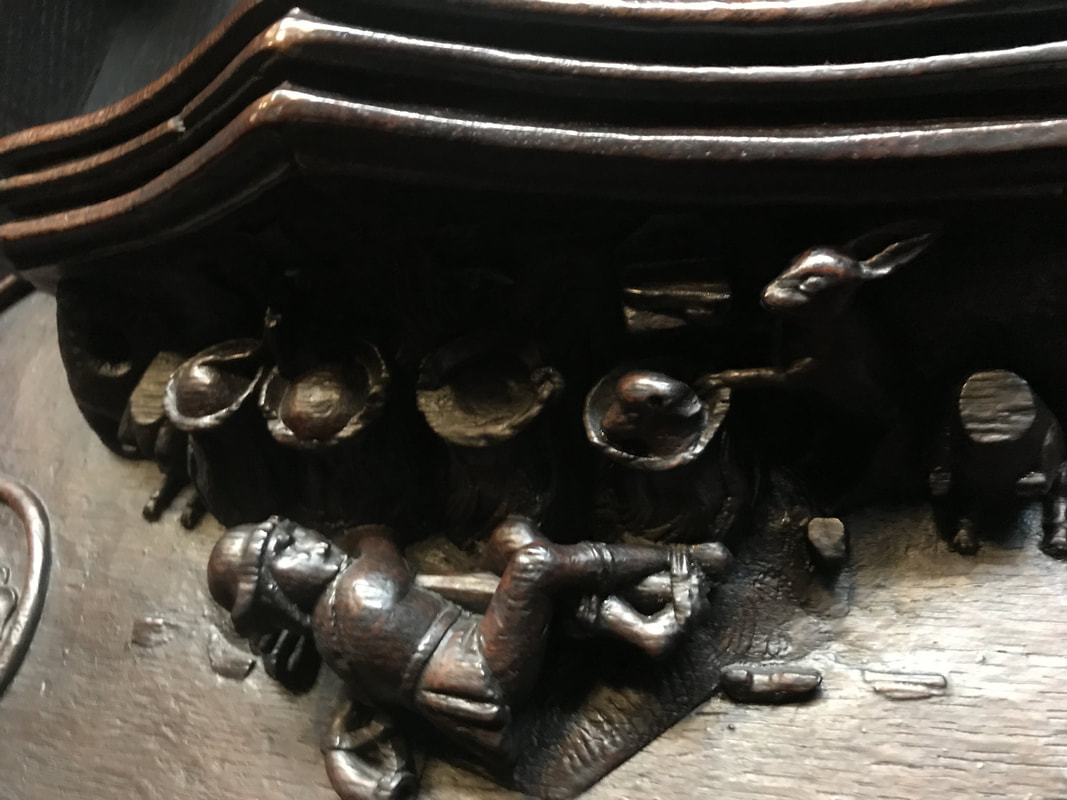
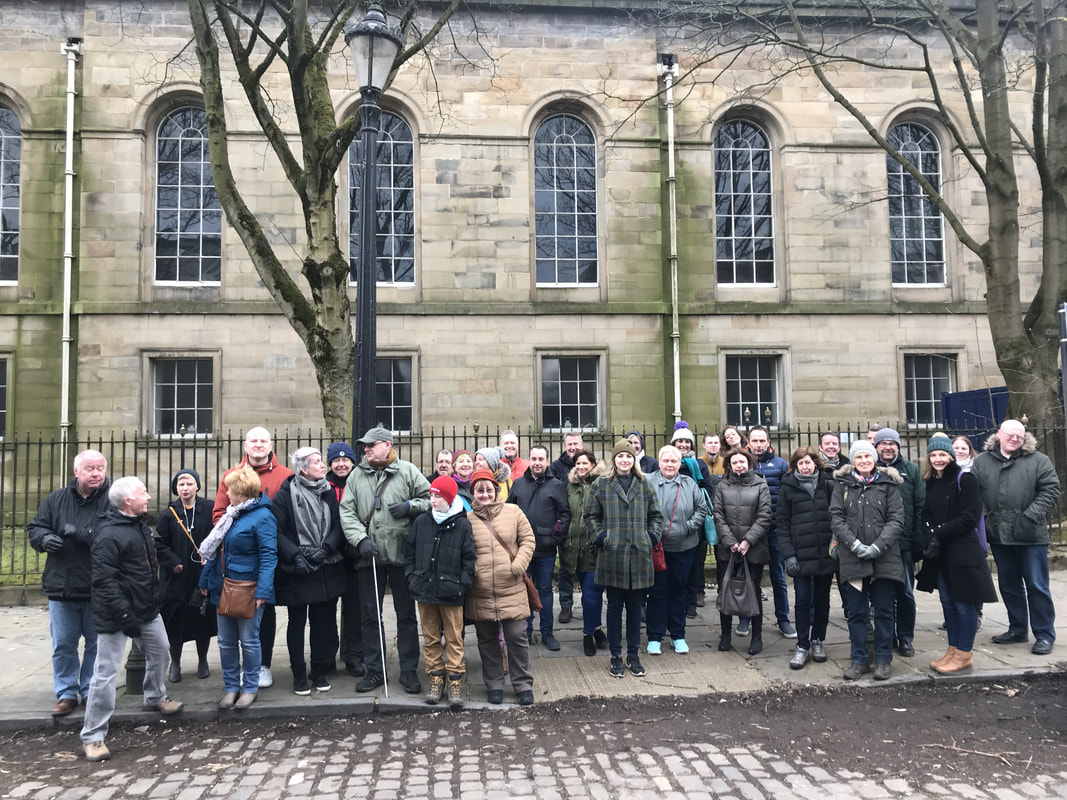
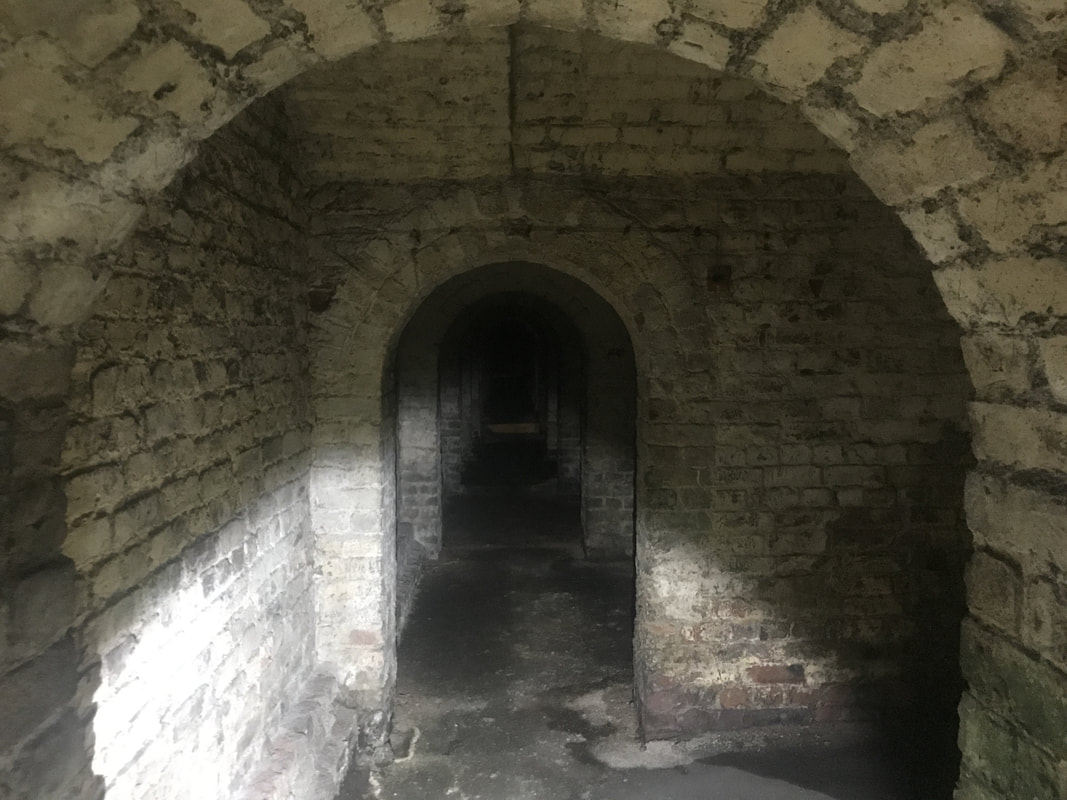
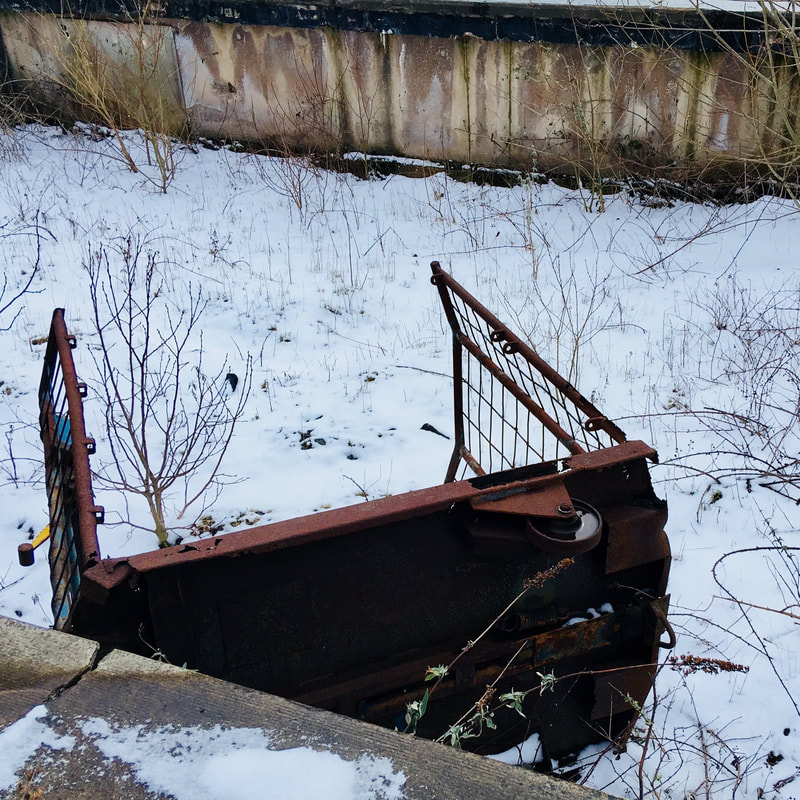
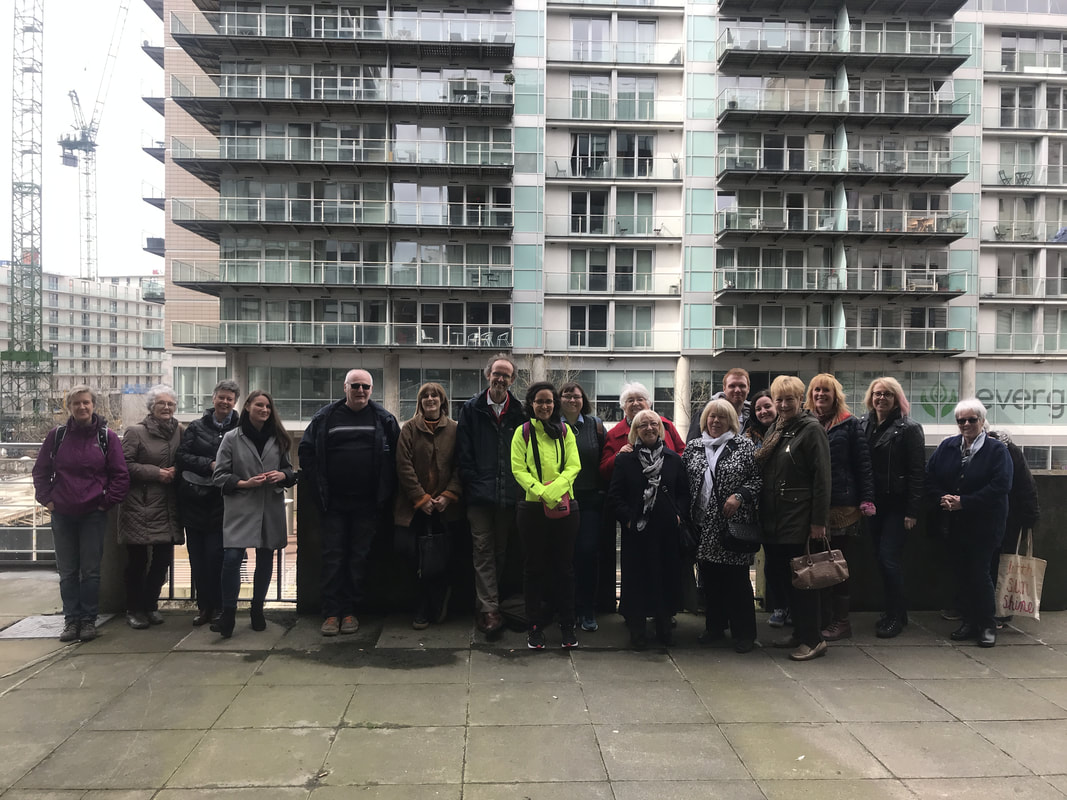
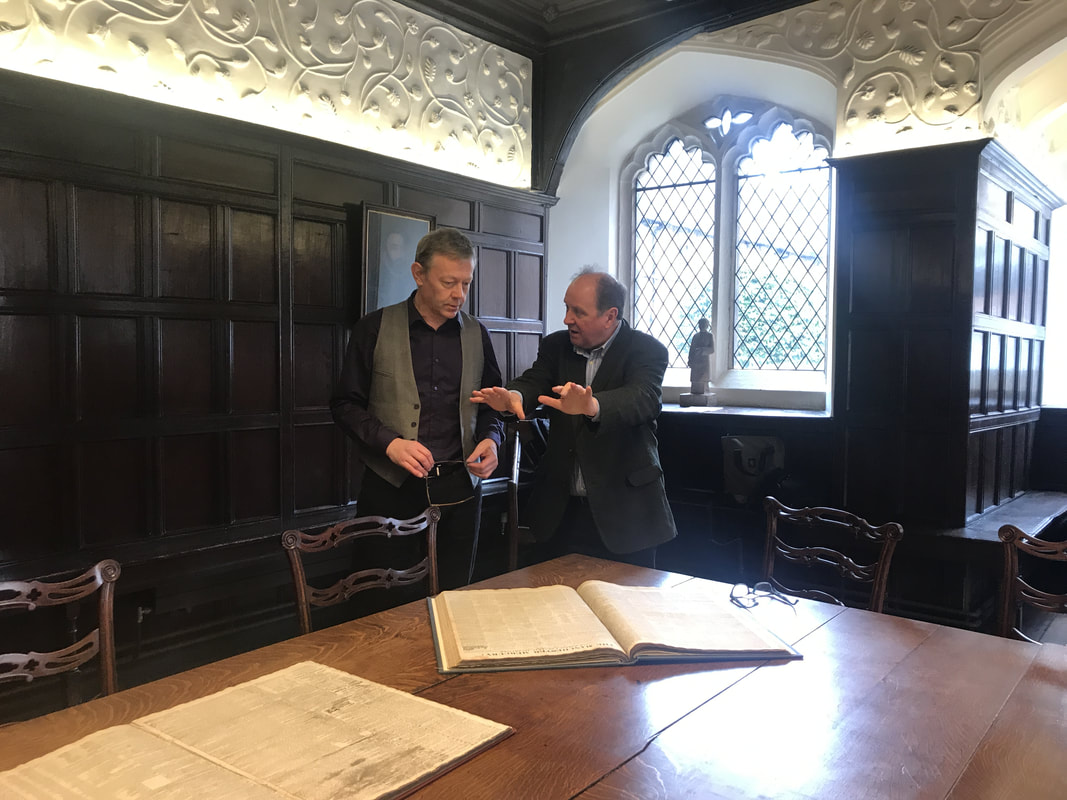
 RSS Feed
RSS Feed